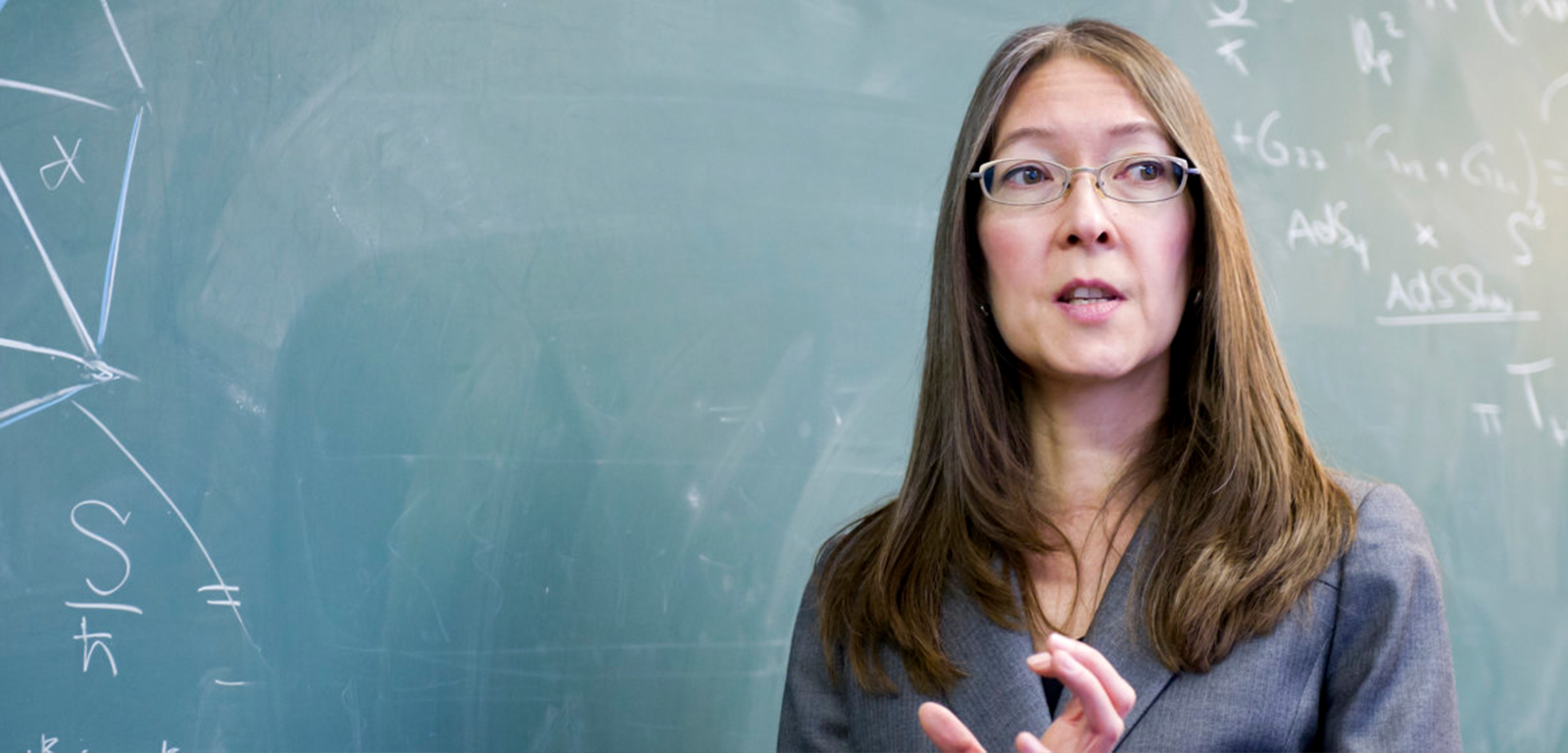

Physics at Imperial covers a broad range of topics in both fundamental and applied physics.
This course is ideally suited to those with a specific interest in mathematics and its application, and places less emphasis on experimental work than our standard Physics courses.
You will follow a similar curriculum to the standard Physics courses for the first two years, covering key topics such as electromagnetism, relativity and quantum physics. As a Theoretical Physics student, you will take an extra mathematics module in both years in place of a physics module.
This core programme provides you with a good grounding in physics, mathematics and experimental methods, and prepares you for advanced study.
As the degree progresses you will have greater flexibility to specialise, with a wide choice of theoretical optional modules in areas such as group theory, general relativity and quantum field theory.
You will also have the opportunity to build on the BSc course with an additional year of Master's level study, and the chance to complete a substantial project on a theoretical physics topic in one of our research groups.
Many of our modules are directly linked to our research so you’ll be learning at the very cutting edge of the subject. Research in our Department has contributed to ground-breaking discoveries in many different fields, from astrophysics to quantum optics and laser science.
More information:click here
Year 1
Mathematical Analysis
Mechanics and Relativity
Oscillations and Waves
Practical Physics: Laboratory, Computing and Problem Solving
Statistics of Measurement and the Summer Project
Vector Fields, Electricity and Magnetism
Year 2
Core modules
Advanced Practical Physics
Differential Equations and Electromagnetism
Mathematical Methods
Quantum Physics
Thermal Physics and the Structure of Matter
Optional modules
You will choose one module from below.
These modules are given as a guide to what you will be able to choose from.
Communicating Physics
Environmental Physics
Suns, Stars and Planets
Year 3
Core modules
Advanced Classical Physics
Comprehensives
Nuclear and Particle Physics
Solid State Physics
Optional modules
These modules are given as a guide to what you will be able to choose from.
Astrophysics1
Complexity and Networks1
Computational Physics1
Foundations of Quantum Mechanics1
Group Theory1
Lasers
Medical and Biological Imaging
Plasma Physics
Principles of Instrumentation
Statistical Mechanics1
Year 3 Project or Essay Project
Year 4
Core modules
MSci Project
Research Interfaces
Optional modules
These modules are given as a guide to what you will be able to choose from.
Some of the modules listed below are available in both your third and fourth years, and you will choose different modules to those already studied in the year before.
Advanced Particle Physics1
Atmospheric Physics
Concepts in Device Physics
Cosmology
Entrepreneurship for Physicists
General Relativity1
Hydrodynamics
Information Theory
Introduction to Plasmonics and Metamaterials
Laser Technology
Optical Communications Physics
Quantum Field Theory1
Quantum Information1
Quantum Optics
Quantum Theory of Matter1
Space Physics
Unification - The Standard Model1
1 The modules marked (1) are theoretical modules and will make up the majority of your choices

As a Physics graduate from the College, you will be highly sought after by employers. About half of our graduates go on to postgraduate-level study if you decide to pursue further study after your degree.
Your degree will provide you with the chance to develop a broad range of professional skills, helping to prepare you for life after university. Your analytical and problem-solving skills will be highly sought after in a range of industries, from ‘technical’ industries, such as oil and gas, to telecommunications, consultancy, banking, finance, to the sectors such as education, health, or defence
Whether you’re certain of what you want to do after graduation, or if you simply have no idea at this stage, this physics degree will help keep your options open.
Recent graduates of the Department have become:
Research Analyst, National Physical Laboratory
Operational Researcher, Department of Energy and Climate Change
Research Engineer, A*STAR, Singapore
Systems Engineer, BAE Systems
Innovations Analyst, Carbon Trust

Insurance-Single:£300/year